J OHN Q UINCY A DAMS
DIARIES
I: 17791821
David Waldstreicher, editor

THE LIBRARY OF AMERICA
Volume compilation, notes, and chronology copyright 2017 by
Literary Classics of the United States, Inc., New York, N.Y.
All rights reserved.
No part of this book may be reproduced in any manner whatsoever without
the permission of the publisher, except in the case of brief
quotations embodied in critical articles and reviews.
Selections also published in Diary of John Quincy Adams, 17791788,
David Grayson Allen, Robert J. Taylor, Marc Friedlander,
and Celeste Walker, eds., 2 vols., copyright 1981 by the
Massachusetts Historical Society used by permission.
All other texts used by permission of the Adams Family Papers,
Massachusetts Historical Society.
For more information on the specific texts see the Note on the Texts.
Images of diaries courtesy Collection of the Massachusetts Historical Society. First: diary for November 13, 1783. Second: diary for March 1920, 1815.
LIBRARY OF AMERICA, a nonprofit publisher, is dedicated to publishing, and keeping in print, authoritative editions of Americas best and most significant writing. Each year the Library adds new volumes to its collection of essential works by Americas foremost novelists, poets, essayists, journalists, and statesmen.
Visit our website at www.loa.org to find out more about Library of America and to explore our popular Story of the Week and Moviegoer features.
e ISBN 9781598535235
John Quincy Adams:
Diaries
is published with support from
THE BODMAN FOUNDATION
and
SIDNEY AND RUTH LAPIDUS
Have you kept a regular Journal? If you have not, you will be likely to forget most of the Observations you have made. If you have omitted this Usefull Exercise, let me advise you to recommence it, immediately. Let it be your Amusement, to minute every day, whatever you may have seen or heard worth Notice. One contracts a Fondness of Writing by Use. We learn to write readily, and what is of more importance, We think, and improve our Judgments, by committing our Thoughts to Paper.
John Adams to John Quincy Adams, May 14, 1783
J OHN Q UINCY A DAMS s diary is one of the most extraordinary works in American literature. Begun in 1779, when Adams was twelve, it was maintained more or less faithfully until his death almost seventy years later, and extends over fifty-one manuscript volumes and more than fourteen thousand closely written pages, including an unbroken string of daily observance spanning a remarkable twenty-six years. Its entries, which range from five hundred to five thousand words or more, record the events of Adamss public and private lives, including detailed accounts, sometimes verbatim transcripts, of cabinet meetings, diplomatic interviews, congressional debates, dinner conversations, and social calls; incisive character sketches of presidents and princes; painful confessions of anxiety about his own shortcomings, and about the welfare of his family; reflections on sermons he heard and books he read; experiments in verse and translation; theater reviews; and scientific and natural observations. The devotion with which Adams maintained his diary, even when the press of events made doing so burdensome, suggests that it served a number of essential purposes for him, as a confessional, an aide-mmoir, and as a proving ground for his thoughts on everything from public policy to philosophy.
This Library of America volume, the first of a two-volume set, presents a selection of diary entries from November 1779 until March 1821, the conclusion of the first term of President James Monroe, under whom Adams served as secretary of state. Daily entries, when possible, are presented in full. In some, certain passages, especially such recurring features of the diary as meteorological observations, records of social visits received and returned, and accounts of bills paid and due, have been cut for space and to avoid repetition. Resulting breaks within an entry, or at the end of an entry followed by the next days entry, are indicated with the symbol. All other breaks are indicated with a small centered rule line. The Note on the Texts in this volume offers more information on the history of the diaries and on the textual policy followed in this edition.
A NOTE ON IDENTIFICATION : Adamss diary records his interactions with or reflections on a very large cast of characters. Where these individuals are referred to by surname, identification is provided in the Index. Where they are designated only by their first names or titles, or where additional explanation is warranted, they are identified in the Notes.

17791793
Europe Harvard Boston
[November 1779]
A Journal
A Journal by Me
J Q A
Vol: 1 st.
Friday 12 th. this Morning at about 11 OClock I took leave of my Mamma my Sister & Brother Tommy and went to Boston with in order to go on board the Frigate the Sensible of 28 twelve Pounders. we arrived at Boston at about 1 OClock; dined at my uncle Smiths, we expected to go on board in the afternoon but We could not conveniently till to morrow.
Saturday 13 th. to day at about 1 OClock Pappa, & my Brother Charles, came to town, and at about 5 OClock we all came on board and took our lodgings. My Brother Charles is to lodge with My Pappa and I with Mr. Thaxter.
Sunday 14 th. this morning a great number of Gentlemen came on board, and amongst others col Johonnot with a son of his who is going to France with us. there are a great number of Passengers and the Frigate is very well mannd. col Johonnot introduced me to his son, with whom I hope I shall form an acquaintance, which will be very agreable to me and I shall endeavour to make myself agreable to him. this afternoon , came on board, and told us that he saw a day or two agone two ships and a brig off Cape Ann: we were very glad he told us of it, so that now we can take proper Measures for shunning them.
[August 1783]
Aug. 10 th. Sunday. This morning, at about 10 OClock, I accompanied my Father to Passy, to see Dr. Franklin whom I knew already, and Mr. Jay, the american Minister at Madrid, whom I had never seen before; they were at breakfast and had a great deal of Company. Mr. Jay and my Father took a walk in the Garden and had a Conversation upon politicks, which, is of no Necessity here. From thence we went to Auteuil; to see Mr. Barclay, the American Consul-General in France, but found he was gone, and therefore we saw only Mr. Ridley. The House where they are is a very fine one; but, above all there is in it, one thing, which is very curious. it is a small octogonal room with a bath in the middle of it, and in every one of the eight corners of it is a Looking-glass. the cieling, is also made of a Looking-glass; so that a person can see himself in more than thirty different positions in it. The garden is a small and pretty one filled with fruit Trees; we took a walk in it. Mr. Ridley told me that Sammy Cooper Johonnot and , two of my old schoolmates here had returned from Geneva, where they have been for some time, and that Sam Cooper is gone to Nantes.


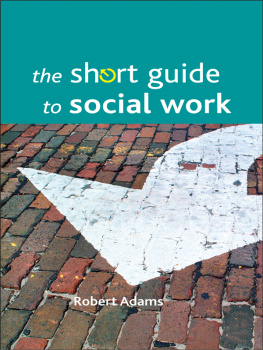
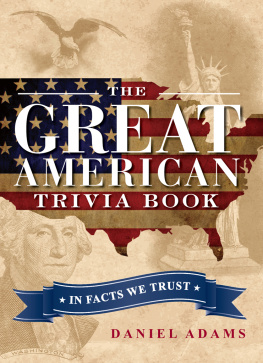
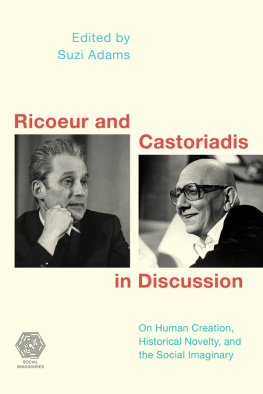



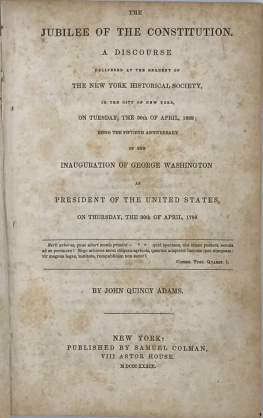
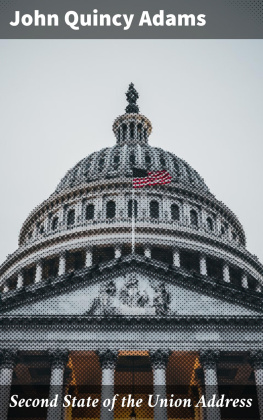
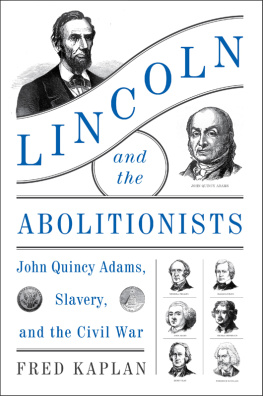
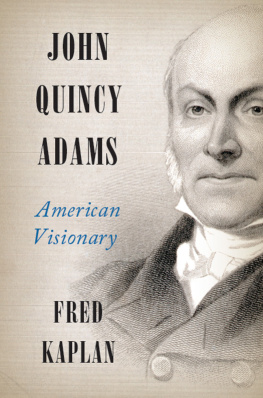
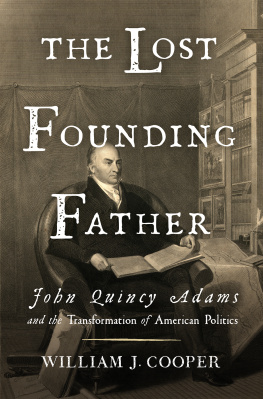
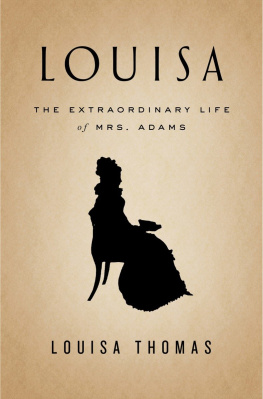
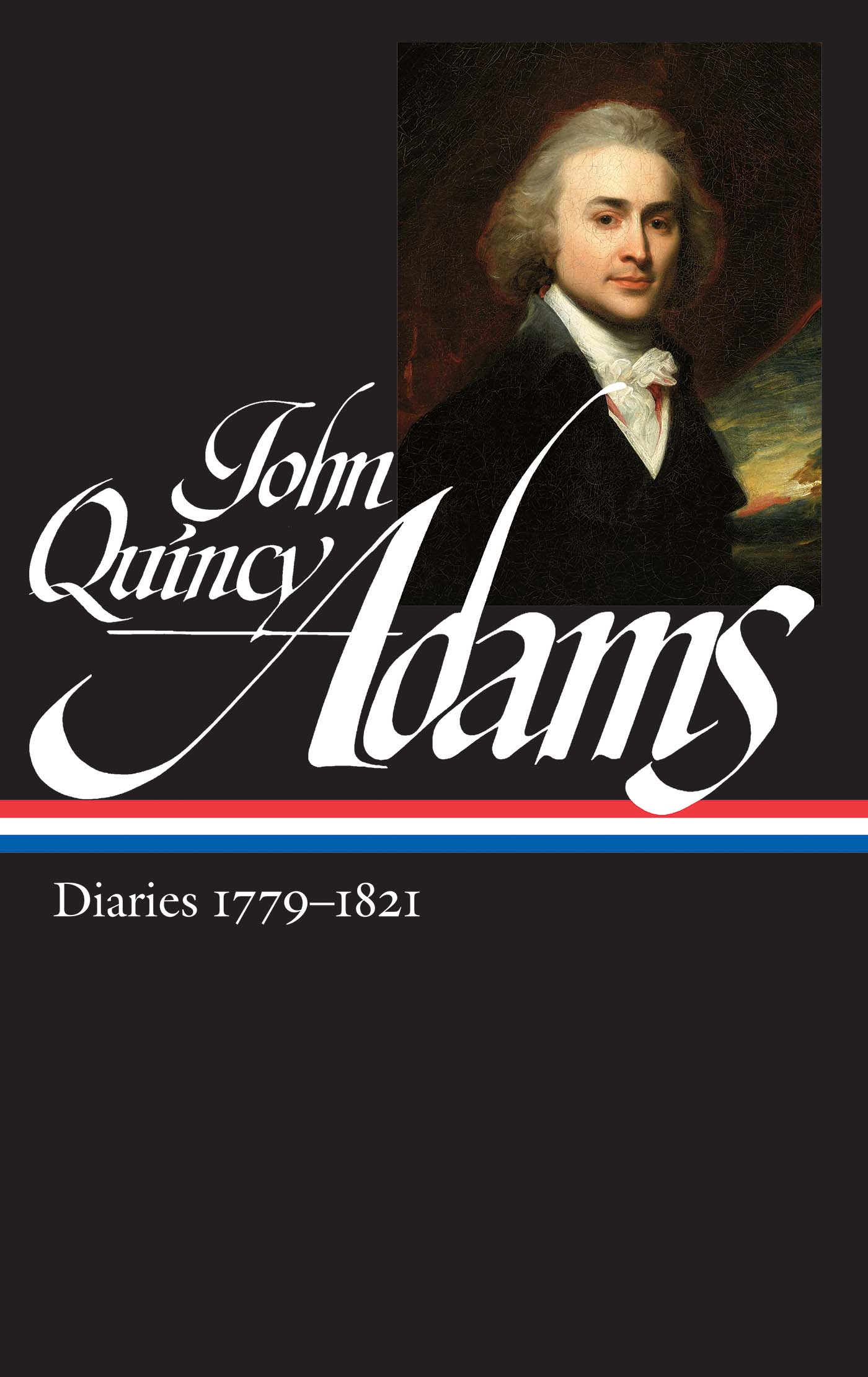
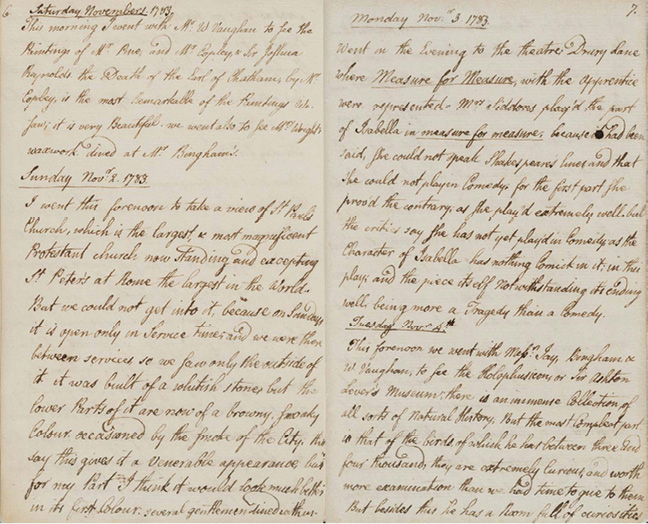
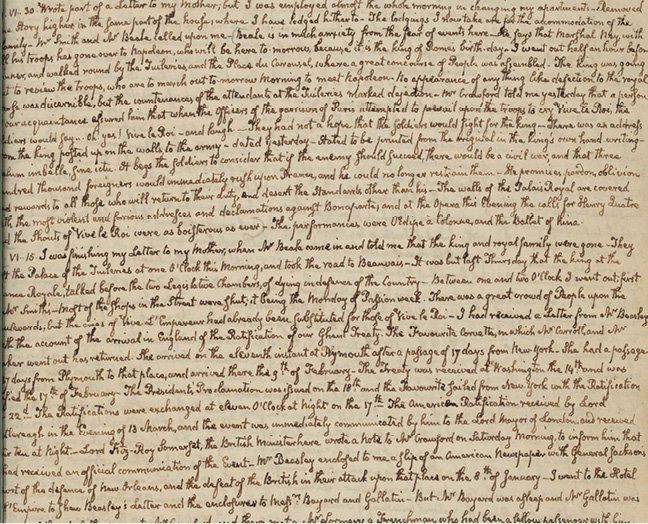

 17791793
17791793